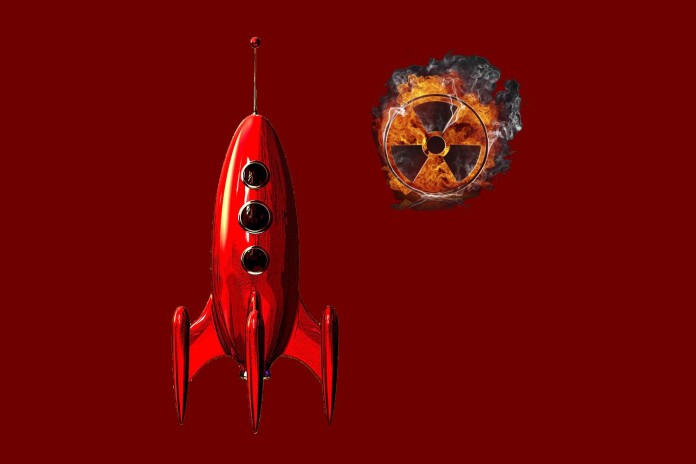
If space travel were cheap, everyone would be doing it. All the rage these days seems to be about getting to Mars. Yet, it costs a hefty penny in which to do so. NASA is certainly struggling with it so one can only imagine how our cash-starved buddies in Russia are doing. Frankly, they’re not exactly rolling in rubles, but at least, they have a creative approach to the conflict. The answer lies in a controversial ‘Chernobyl’ rocket.
RUSSIA HARKENS BACK TO CHERNOBYL FOR SPACE ROCKET
While calling this rocket the “Chernobyl” is both funny and offensive, there is really nothing humorous about what Russia plans to do with nuclear technology. Fortunately, this time, it doesn’t involve blowing up the U.S, but Russia very well may blow themselves up. Again. The Chernobyl Rocket is an affordable answer to an expensive question. In order to create more power than thrust, rockets need to carry more fuel. This means more weight and more money spent. By using nuclear engines, the Russian’s think they can create a lightweight and powerful solution to get to Mars in just ninety days. Seeing as today’s engines take a year and a half to get there, the costs would be significantly less.
WILL NASA GO NUCLEAR?
If Russia can scrape up the funds in time, they expect to have their rocket ready for testing in 2018. It seems like a race to Mars is the latest in space competition between the two old rivals. Knowing what Russia has in store, everyone is wondering what NASA will do. NASA has thought about similar concepts for a Mars mission, but America isn’t exactly as daring when it comes to nuclear energy. Perhaps they are afraid of producing their own “space Chernobyl” that will only come crashing down to Earth. Despite this fear, they certainly tend to agree with the Russians on one matter.
OLD ENEMIES TO BECOME ALLIES
NASA administrator Charles Bolden had just released a statement saying that nuclear thermal propulsion is surely the most effective way of sending humans to Mars. Seeing NASA and the Russians agree on a matter such as nuclear power is both exciting and oddly strange. Will this be a sigh of future cooperation for the two? Maybe there won’t be any Space Race 2.0. Instead, imagine a joint mission to Mars powered by the Chernobyl Rocket. A beautiful image, but given the history of the two nations, don’t count on it just yet.

















